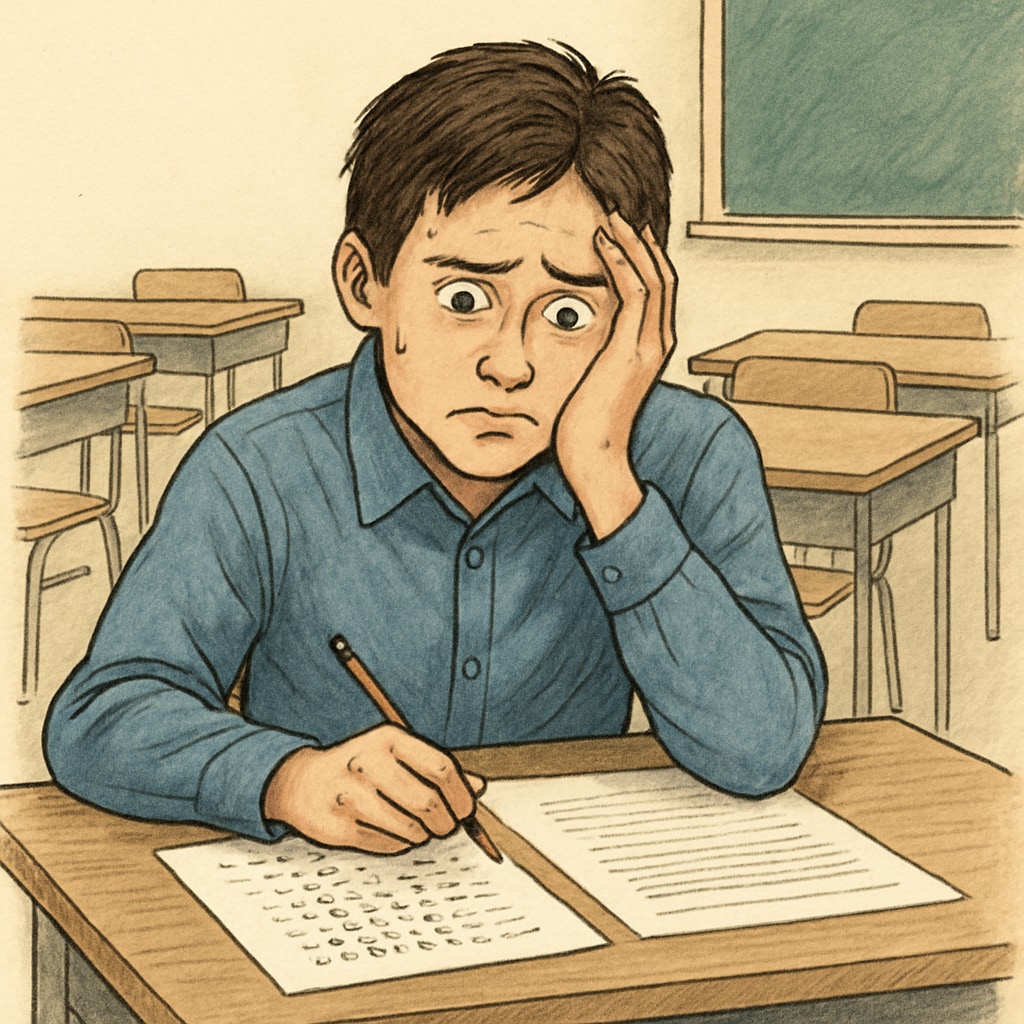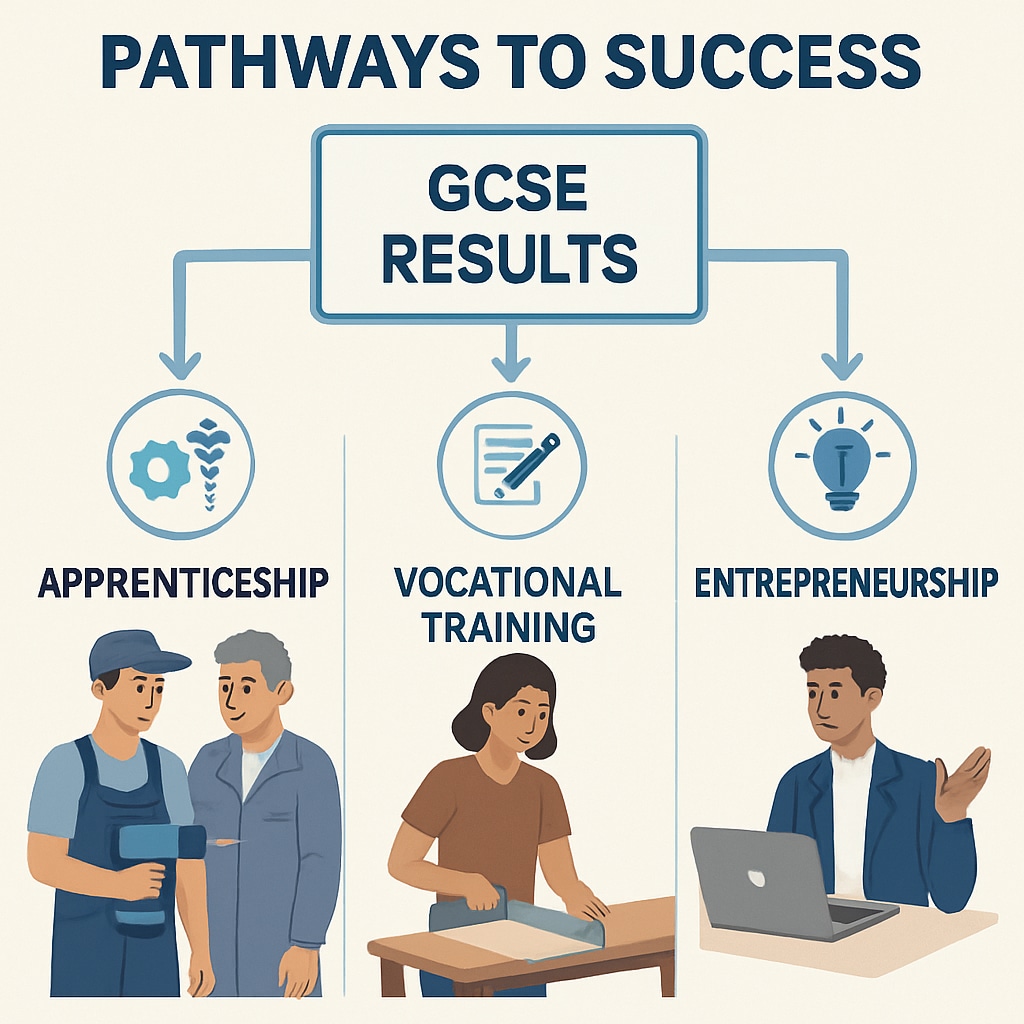For many students, GCSE results can feel like a defining moment in their academic journey. The pressure to perform well often leads to academic anxiety and self-doubt, particularly if the results fall short of expectations. However, while disappointing GCSE grades may seem like a setback, they do not have to dictate your future. This article explores the psychological and societal impact of GCSE results, emphasizing the importance of diverse evaluation systems and offering practical advice for students to regain confidence and chart their individual paths to success.
The Psychological Impact of Disappointing GCSE Results
Receiving lower-than-expected GCSE results can trigger a wave of negative emotions. Students often experience feelings of failure, self-doubt, and fear about their future prospects. These emotions can be exacerbated by societal pressure and the perception that academic performance is the sole measure of one’s worth. For example, many schools and parents emphasize the importance of high grades as a prerequisite for university admission or competitive job opportunities.
A study by the UK’s National Foundation for Educational Research (NFER) found that exam-related stress is one of the most common mental health challenges faced by teenagers. Social comparisons, amplified by conversations among peers and social media, can further deepen feelings of inadequacy. As a result, students may internalize their disappointment, leading to long-term self-esteem issues.

Why Society Overemphasizes Academic Achievement
One of the key drivers of academic anxiety is the societal emphasis on standardized testing as a measure of ability. GCSE results are often portrayed as the ultimate gateway to success, which places immense pressure on young people. This narrow focus overlooks the fact that intelligence and potential cannot be fully encapsulated by exam scores.
In addition to this, employers and universities sometimes perpetuate the notion that academic success is the only path to achievement. While good grades can open certain doors, they are not the only criteria for long-term success. Many successful individuals, including entrepreneurs and creatives, have thrived despite unconventional academic trajectories.
Alternative evaluation methods, such as project-based learning or skill-focused assessments, offer more holistic ways to measure a student’s ability and potential. These frameworks highlight the importance of critical thinking, creativity, and collaboration—skills that are equally essential for thriving in modern society.

Turning Setbacks into Opportunities
Disappointing GCSE results should be viewed as an opportunity for growth rather than an insurmountable obstacle. Here are some strategies to help students rebuild confidence and explore new paths:
- Reframe your mindset: Understand that failure is not the opposite of success; it is part of the journey. Reflect on what went wrong and identify areas for improvement.
- Seek support: Talk to teachers, mentors, or counselors who can help you evaluate your options and provide emotional guidance.
- Explore diverse pathways: Vocational training, apprenticeships, and online certifications are all viable alternatives to traditional academic routes.
- Focus on strengths: Identify areas where you excel, such as creativity, leadership, or technical skills, and consider careers that align with these strengths.
For example, vocational programs and apprenticeships allow students to gain hands-on experience in industries such as technology, healthcare, or engineering. These paths not only offer practical skills but also lead to fulfilling careers without requiring a university degree.
Conclusion: Your Future Is More Than Grades
While GCSE results can influence immediate academic options, they do not determine your overall potential or future success. Students should strive to view their academic journey holistically, recognizing that resilience, creativity, and adaptability are just as important as exam scores. By embracing alternative pathways and focusing on personal growth, you can turn academic setbacks into stepping stones for a brighter future.
Remember, success is multifaceted, and one exam should never define your worth. It’s time to challenge societal norms and create a future where diverse talents and pathways are equally celebrated.
Readability guidance: Throughout the article, short paragraphs, transitional phrases, and lists are used to improve readability. Active voice is prioritized, ensuring that the tone remains motivational and practical.


